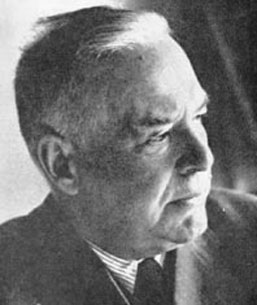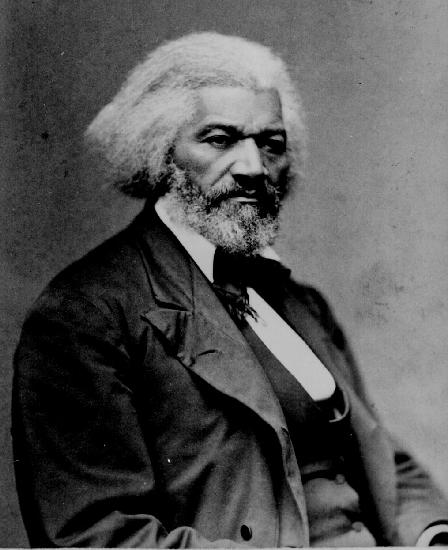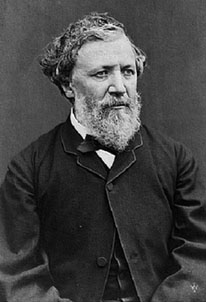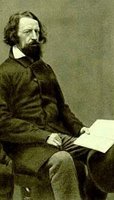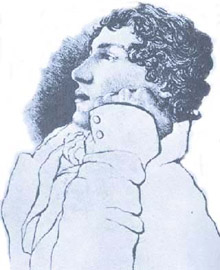A Love Song

T.S. Eliot (1888-1965) published “The Love Song of J. Alfred Prufrock” in Poetry magazine in 1915 to great acclaim. The American poet Ezra Pound called it “the best poem I have had or seen from an American” and became Eliot’s friend, mentor, and champion. In the same year, Eliot, who had been born in St. Louis and educated at Harvard, relocated to England, where he lived for the rest of his life. In 1922, he published the long poem “The Waste Land”; the poem had enormous, wide-reaching impact and made Eliot’s reputation as the most influential poet of the twentieth century. Literary critic Alfred Kazin called him “the model poet of our time, the most cited poet and incarnation of literary correctness in the English- speaking world,” while Northrup Frye wrote, “A thorough knowledge of Eliot is compulsory for anyone interested in contemporary literature. Whether he is liked or disliked is of no importance, but he must be read.”
One of the reasons Eliot’s work received so much attention is that he was at the forefront of Modernism, an artistic movement that reacted against the excesses of nineteenth century art, which Modernists found overly emotional and sentimental. Modern art is characterized by:
- the desire to create art that is experimental and challenging. James Joyce is reported to have said that it took him twenty years to write his novel Finnegan’s Wake, and he expected it to take the reader twenty years to read it. Art that is easily understandable is popular art, produced on a mass scale for people who don’t want to have to work to appreciate it. True art, high art, requires thought and concentration and sophistication—it challenges the audience and may even outrage and offend;
- a feeling of being in a spiritual wasteland. Many artists saw World War I as an indication that the modern world had irreparably lost its connection to the great Western traditions. Europe, the home to the highest achievements in art, science, philosophy, architecture, literature, had produced a war of unimaginable brutality, wiping out an entire generation of men. Many people felt they had nothing to believe in any more;
- fragmentation and discontinuity. Many artists express their feeling that life has little sense of order or connectedness by producing art that reflects that disconnectedness and disorder. Narratives present experience in a fragmentary way because life itself is fragmented and hard to follow. William Faulkner’s The Sound and the Fury, for example, is told by four different narrators, who tell the story from remarkably different perspectives, remembering the same event in different ways. The novel’s first narrator, Benjy, is mentally challenged, making his story difficult to follow.
It’s not hard to see the way “The Love Song of J. Alfred Prufrock” expresses some of these values. In the first place, the title contradicts the reader’s expectations: “J. Alfred Prufrock” doesn’t seem like a very romantic name. It’s hard to think of a romantic heroine murmuring the words, “Oh, J. Alfred Prufrock, you magnificent brute, sweep me into your arms.” The name comes across as a little prim, probably not the name of a person whose love song you’d find fascinating. So even the title has a little bit of an edge to it—it’s not what a reader would expect from a sentimental, emotional poem.
The epigraph adds to the confusion. For one thing, it’s in Italian, and when it was originally published, no one provided a handy translation in the footnotes. Secondly, if you get past the language problem, it’s from Dante’s Inferno, which, again, sends mixed signals—a love song that starts out with a reference to a journey through Hell? And then consider the content of the lines: Guido da Montefeltro, one of the people being punished in Hell, tells Dante that he’s only telling him his story because he’s heard that no one in Hell can return to the world of the living—if he thought Dante could return to the world, he wouldn’t say another word.
Again, the references to Hell and the sense of shame over saying anything that might be overheard—not what we tend to think of when we think of a love song.
The poem starts out promisingly enough:
Let us go then, you and I,
When the evening is spread out against the sky
This seems like a lovely beginning, the reader thinks, an invitation from the poet to go with him, and some description. And then we get to the third line, which compares the sky to “a patient etherised upon a table.” Again, it’s an unexpected—what kind of love song contains the image of somebody under anesthesia, about to be operated on? What sort of impression is this poem trying to convey, anyway?
The lines that follow add to that impression, with images of cheap hotels and “half-deserted streets” and restaurants with sawdust and oysters on the floor and streets “like a tedious argument.” It all seems tawdry and unappealing . . . and, again, the reader is left to wonder what sort of love song this could be.
The opening stanza is followed by a two line stanza:
In the room the women come and go
Talking of Michelangelo.
Unfortunately for the reader, the stanza raises more questions than it answers. Where is this room? Is it the place the speaker is referring to when he says “Let us go and make our visit”? Why are the women talking of Michelangelo? Why are they coming and going? What does this have to do with the overwhelming question the speaker mentioned in the first stanza?
When we move on to the third stanza, we find not an explanation of what’s going on with the room and the speaker but a description that compares the yellow fog to a cat. The fourth stanza mentions the fog, but mainly talks about having time to do a number of things, to “prepare a face to meet the faces that you meet,” to “murder and create,” to experience “a hundred indecisions” and “and a hundred visions and revisions.” This tells us something about the speaker’s attitudes toward life, but it doesn’t really answer the questions that have been raised in the poem. And then in the fifth stanza, we’re back to the room with the women talking of Michelangelo. Who are these women? Why do they keep talking about Michelangelo? Why bring this up again?
Obviously, Eliot is using fragmentation and discontinuity in the poem, playing with the reader’s expectations that the poem will tell a story that’s easy to follow. The poem purposely refuses to tell a clear story—it gives us bits and pieces here and there, but it doesn’t tell how these fragments are connected.
One of ways critics have responded to the poem is by trying to recreate the story the poem tells, putting the fragments together to make a coherent narrative. The story that many of them tell is that Prufrock is struggling with the thought of going through the city to the room where the women come and go because he wants to propose marriage to a certain woman, and yet he’s haunted by self-doubt and fear.
Another approach is to say that what the fragments add up to isn’t so much a story as a character study. What we get out of the poem is a sense of who J. Alfred Prufrock is—saying there’s a story about a marriage proposal is trying to read more order into the poem than is really there. In addition, the poem tells us something about the society that produced J. Alfred Prufrock—Western civilization is obviously in decline if it produces these sorts of men who sing this sort of love song.
If we look at “The Love Song of J. Alfred Prufrock” as a character study, we find a character who is filled with hesitation and self-doubt. He wonders “Do I dare?” and “Do I dare?”—the repetition makes him seem even less bold—and he’s afraid that people see him as ridiculous, with thinning hair and spindly arms and legs. He seems to be haunted by the idea that his life is trivial and meaningless: he says “I have measured out my life in coffee spoons” and “I am no prophet—and here’s no great matter;/I have seen the moment of my greatness flicker,” and “No! I am not Prince Hamlet, nor was meant to be,” and “I have heard the mermaids singing, each to each./I do not think that they will sing to me.”
He’s also convinced that he’s experienced everything there is to experience. There are a number of points in the poem that remind readers of the Biblical book of Ecclesiastes: like Ecclesiastes, “Prufrock” conveys the idea that there’s nothing new under the sun, that human life is vanity and mist. The repetition of the line “I have known them all already, known them all,” conveys the sense that the speaker finds life predictable and tedious—there’s nothing for him to look forward to.
Prufrock is also frightened of making connections with other people. The line that speaks of preparing “a face to meet the faces that you meet” conveys a sense of disconnection—putting on a front with other people rather than being open and honest and sincere. He’s afraid of encounters with people with “eyes that fix you in a formulated phrase,” leaving him “pinned and wriggling on a wall,” like a butterfly that’s been caught by a collector. When he thinks about saying the things that are truly important to him to someone he knows, he’s terrified that they won’t understand him: he pictures himself as squeezing “the universe into a ball/To roll it toward some overwhelming question,/To say: ‘I am Lazarus, come from the dead,/Come back to tell you all, I shall tell you all,’” only to have the woman he’s talking to respond “That is not what I meant at all./That is not it, at all.” In other words, if he made a major revelation of what he thinks is most important in the world, he fears the person with whom he shared this intimate moment would completely misunderstand, would be unable to relate to what he had to say. He even repeats the scene in the next stanza, this time using the image of projecting his nerves, his emotions, onto the screen in front of her, only to have her say, carelessly, “That is not it at all,/That is not what I meant at all.”
It’s not the happiest poem to end our class on, but it is hugely significant. Thanks for all your good efforts in this class—I apologize for any problems I’ve caused by being out of town and off campus so often and by being kind of naive about how to teach a class online. Have a great spring semester!
For discussion:
- What does “Prufrock” tell us about the culture that the speaker lives in? What does the speaker think of the world he lives in and the people around him?
- What do you think of the Modernist idea that art should challenge and provoke its audience? Can you think of any contemporary art or music or literature that seems designed to frustrate or anger the audience?
